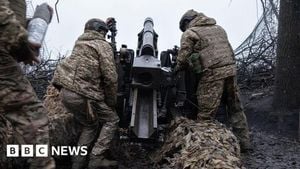On the evening of Wednesday, July 2, 2025, a skydiving plane carrying 15 people crashed near Cross Keys Airport in Monroe Township, Gloucester County, New Jersey, sending all aboard to the hospital with injuries ranging from minor to critical. The single-engine Cessna 208B, leased to Skydive Cross Keys and owned by ARNE Aviation LLC from Virginia, went down around 5:25 to 5:30 p.m., just southeast of Philadelphia.
The incident unfolded shortly after takeoff when the pilot reported engine trouble during ascent. Attempting to circle back for an emergency landing, the plane instead ran off the end of the runway and crashed into a wooded area near the airport. Emergency crews arriving on the scene found extensive damage to the aircraft and many victims covered in jet fuel, necessitating decontamination before transport to local hospitals.
Andrew Halter of Gloucester County Emergency Management described the scene as a "mass casualty incident," with multiple emergency agencies responding swiftly. "Just the fact that we have 15 people that are still with us here today, some with minor injuries, I think is fantastic and remarkable," Halter said during a news conference. He confirmed that all 15 souls on board, including the pilot, were injured in the crash.
Among those injured, three individuals were airlifted to Cooper University Hospital’s Level One trauma center in Camden, New Jersey, where trauma surgeons had been dispatched to the crash site to triage victims. Eight others with less severe injuries were treated in the hospital’s emergency department, while four additional patients with minimal injuries awaited further evaluation. One person aboard the plane refused treatment at the scene.
Wendy A. Marano, spokesperson for Cooper University Hospital, provided details on the hospital’s response, emphasizing the coordinated efforts between emergency medical services and trauma teams both at the crash site and in the hospital. The hospital’s preparedness was crucial in managing the influx of patients from this unexpected disaster.
The Cessna 208B, a popular aircraft for skydiving operations, was leased to Skydive Cross Keys, which describes itself as the "epicenter of skydiving in the Northeast." Located at Cross Keys Airport, the company offers tandem skydiving, certification lessons, and solo jumps for licensed skydivers. Despite its reputation for safety, some local residents expressed concern about the risks of low-flying planes near their homes. Sierra Kelly of Williamstown remarked, "Some of them planes come so close down to our house that it's crazy. I have kids in there. Who knows if they're going to crash into our house." However, another local, Jesse Magee, who lives nearby, praised the skydiving operation, saying, "They do a great job back there trying to keep everyone safe. I don't skydive personally, but I've been back here a few times and watched."
Authorities are investigating the cause of the crash. Both the Federal Aviation Administration (FAA) and the National Transportation Safety Board (NTSB) are on site and actively combing through the wreckage, which lies in a wooded area adjacent to the airport. The NTSB confirmed its investigation via social media, and the FAA is also involved in the inquiry.
Governor Phil Murphy weighed in on the incident through social media, stating he had been briefed and reassuring the public that "there had been no fatalities at this time." This news brought some relief amid the chaos of the crash.
This crash is not the first incident at Cross Keys Airport. In September 2023, a small single-engine plane crashed with only the pilot aboard. The airport also has a tragic history involving skydiving accidents: in April 2019, experienced skydiver Paul Haaf Jr. died due to parachute issues; in November 2012, Donald Lawrence Morozin died after a jump; and in March 2011, attorney C. Scott Shields perished when his parachute failed to open. Despite these past tragedies, Andrew Halter noted that first responders regularly conduct mass casualty training exercises at the airport to prepare for emergencies like this one.
The crash has understandably raised questions about the safety of skydiving operations and low-flying aircraft in residential areas. While the investigation is ongoing, the immediate focus remains on the recovery and care of those injured. Emergency crews and hospital staff continue to manage the aftermath, ensuring that victims receive the best possible treatment.
As officials work to determine the exact cause of the engine trouble that led to the crash, the community watches closely, hoping for answers and improvements in safety measures. The incident serves as a stark reminder of the inherent risks in aviation, particularly in recreational activities like skydiving, where equipment failure or mechanical issues can have dire consequences.
For now, the 15 survivors of the crash remain hospitalized, with medical teams monitoring their conditions closely. The coordinated response by emergency services, hospital staff, and investigators underscores the seriousness with which such incidents are treated and the commitment to preventing future tragedies.






